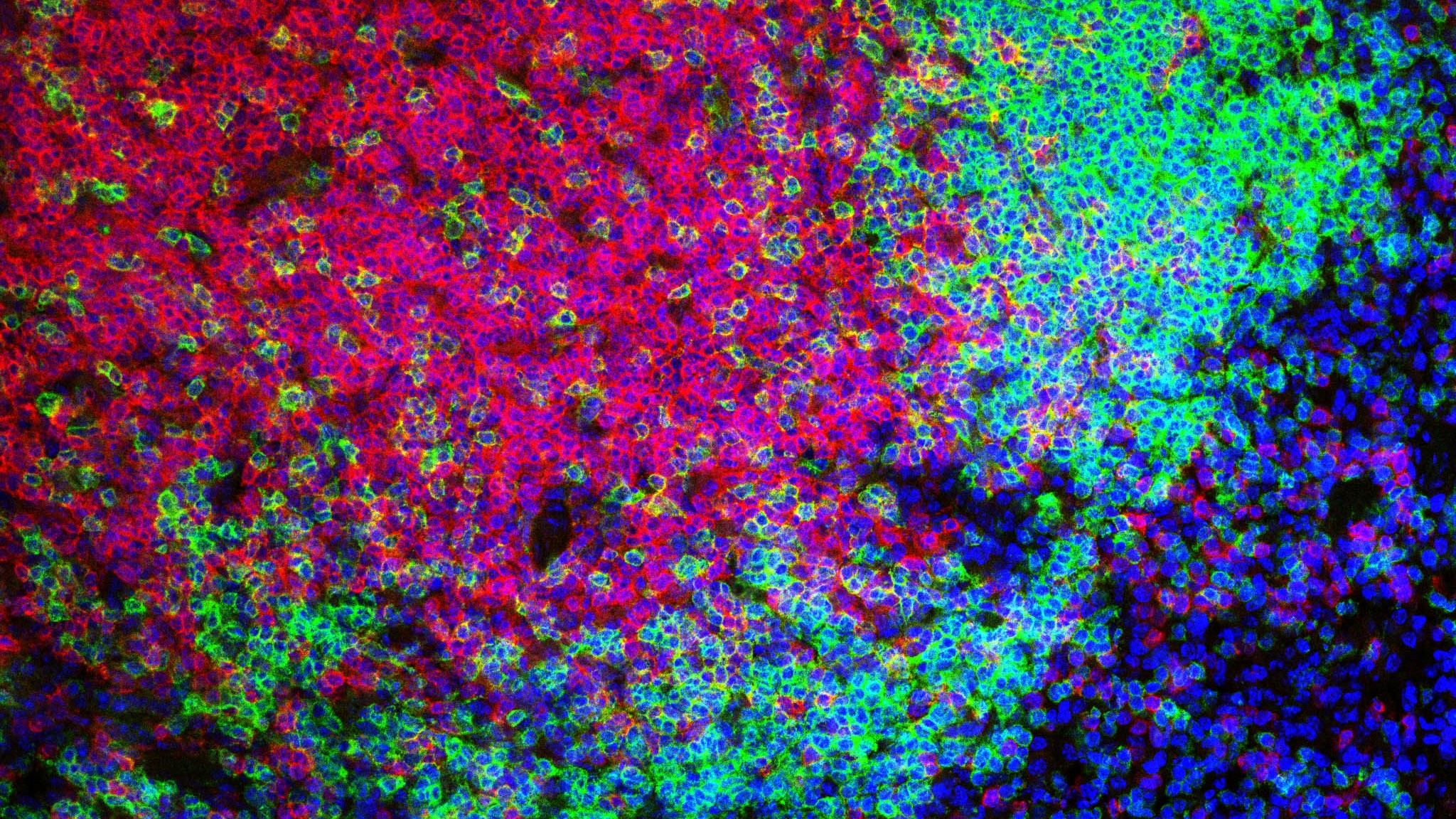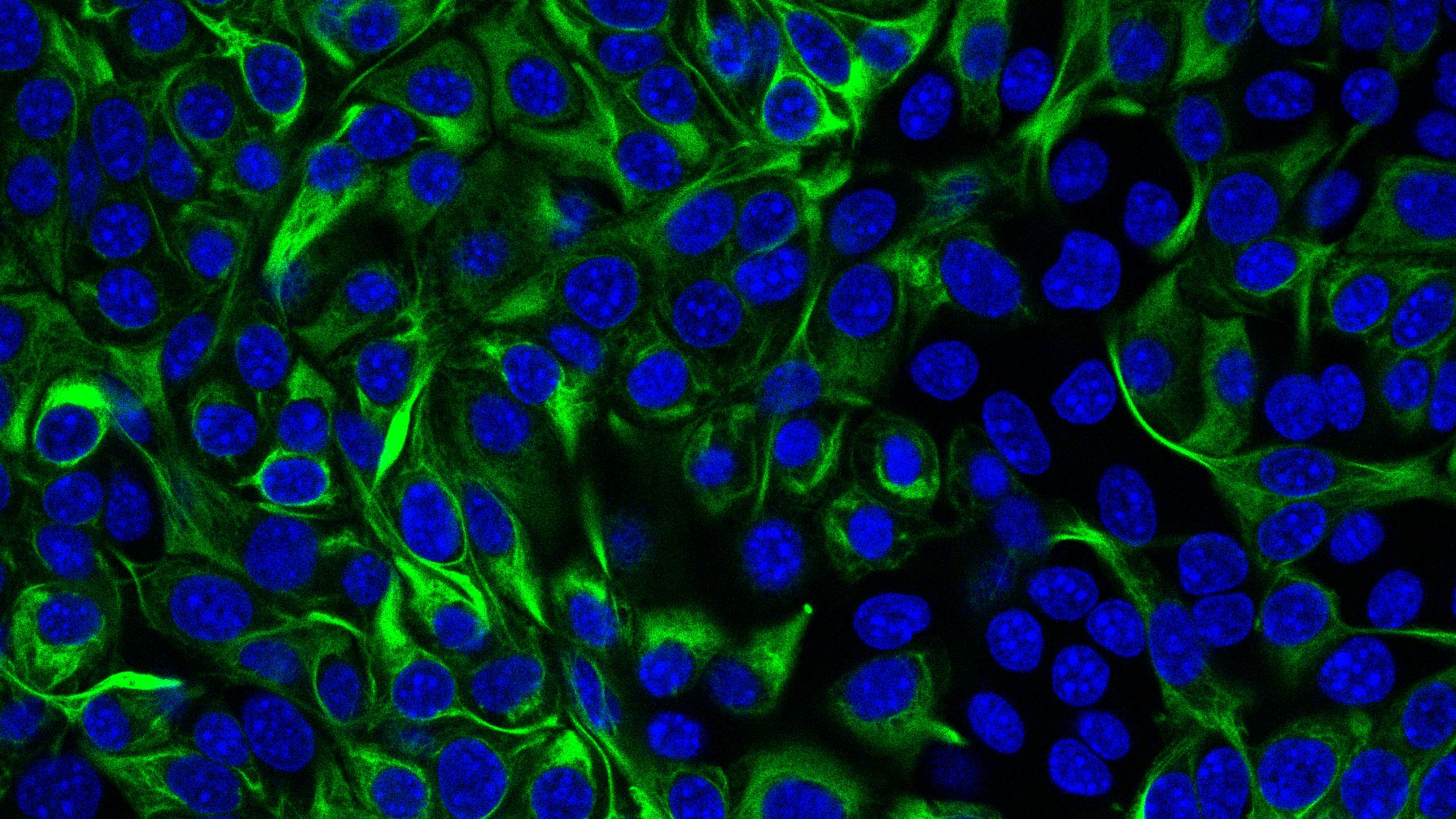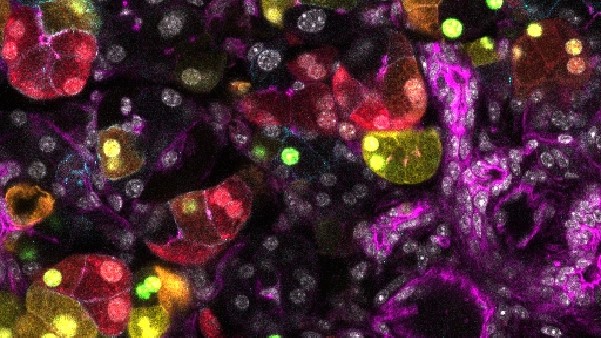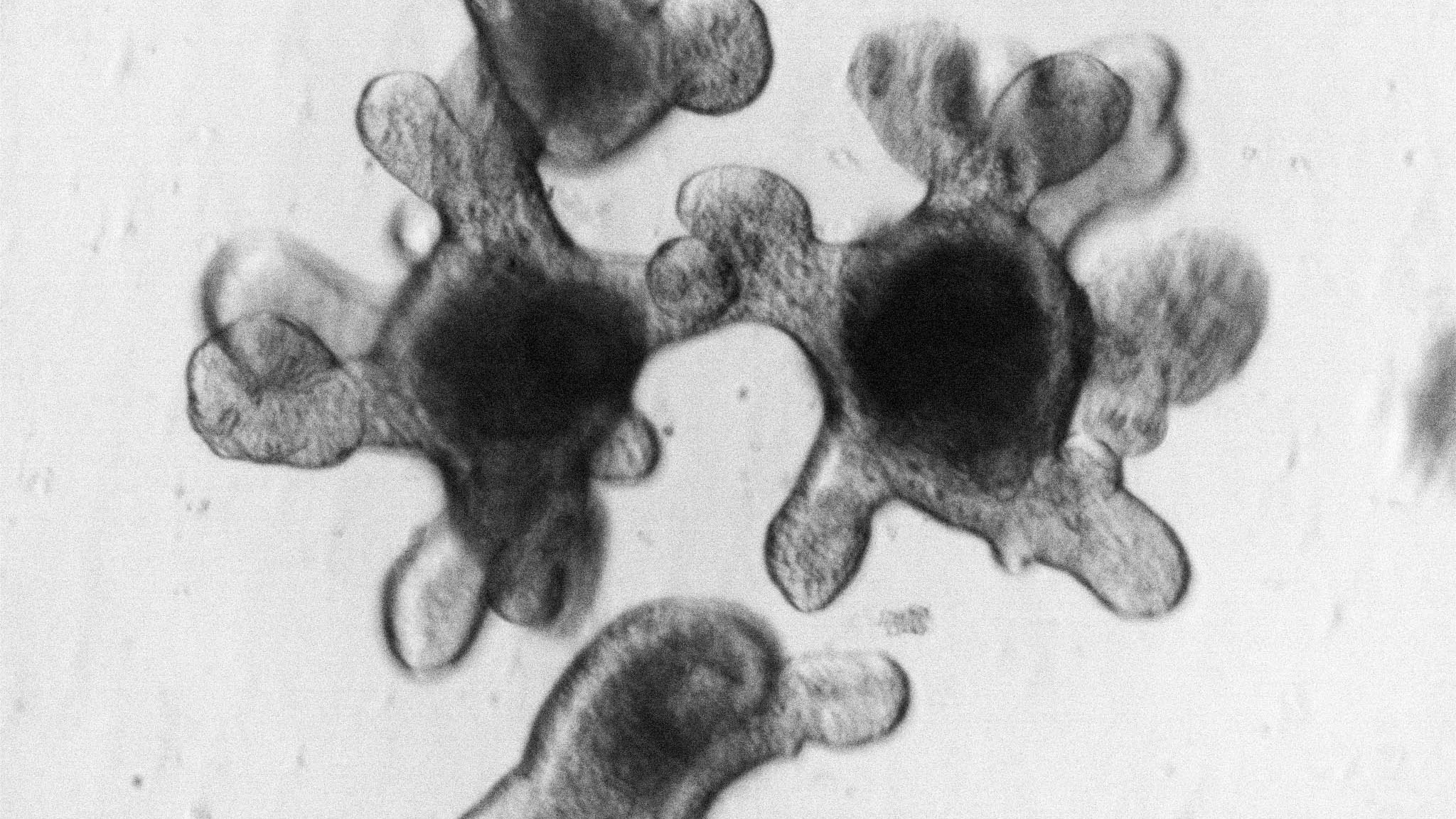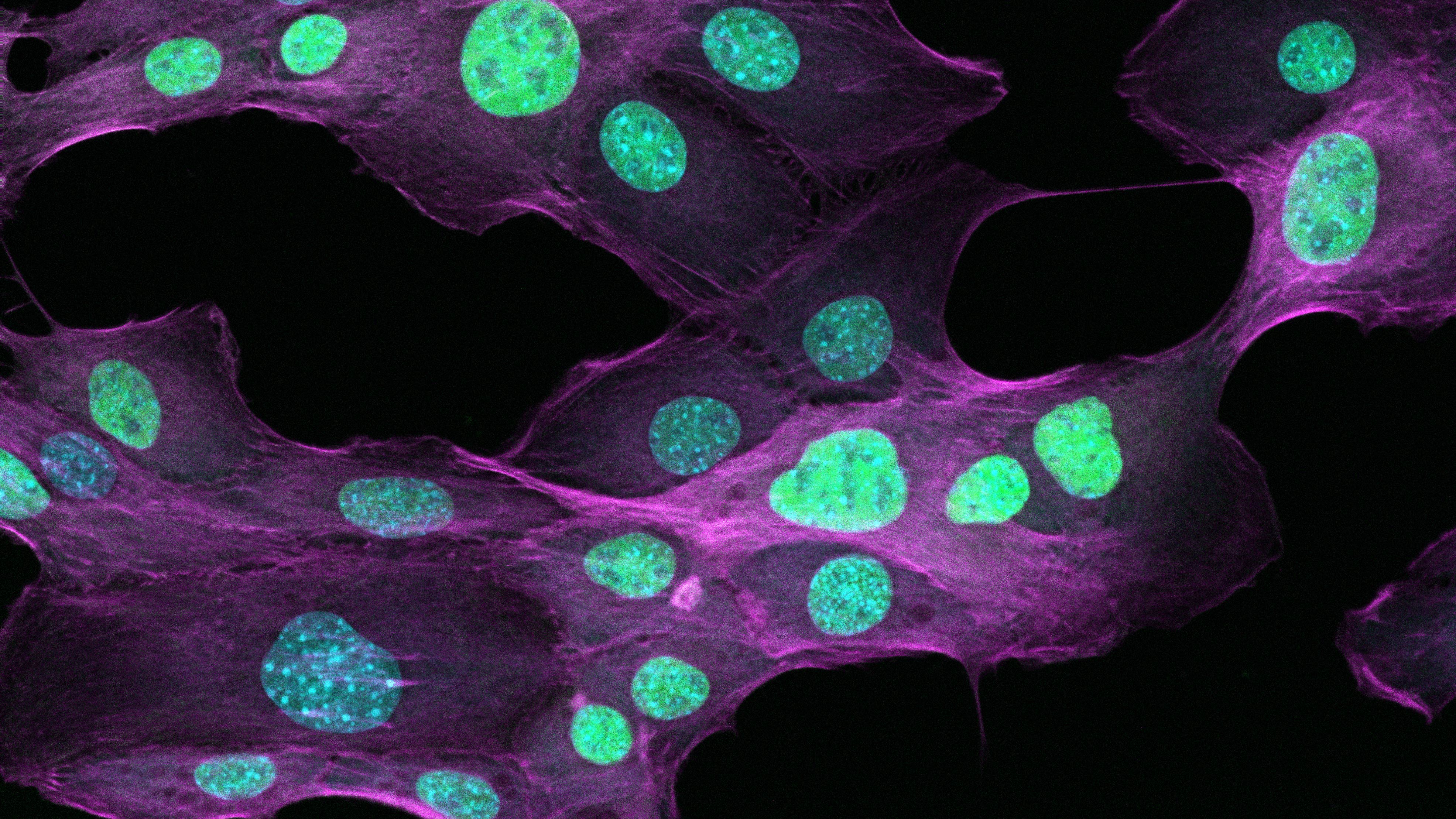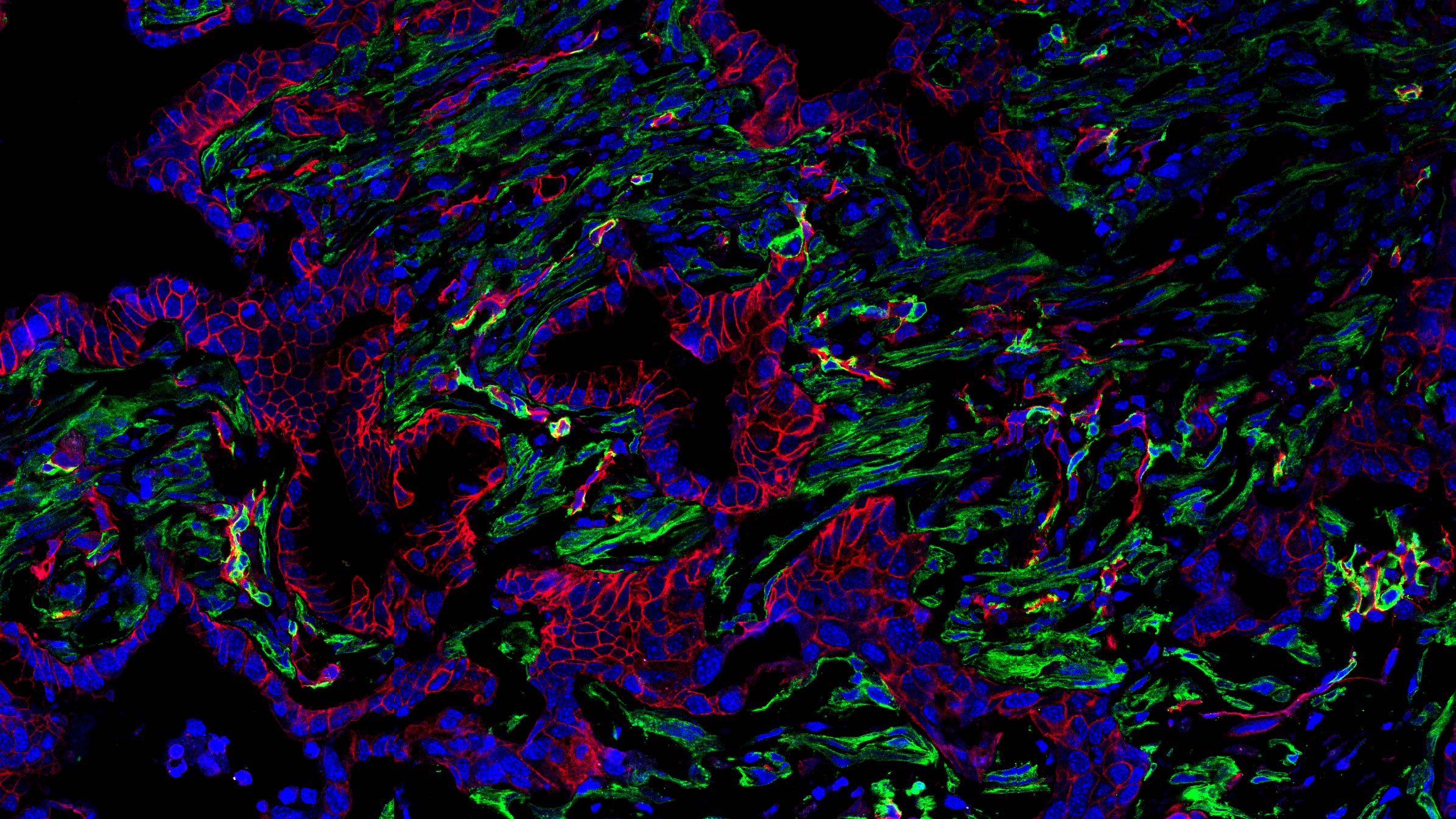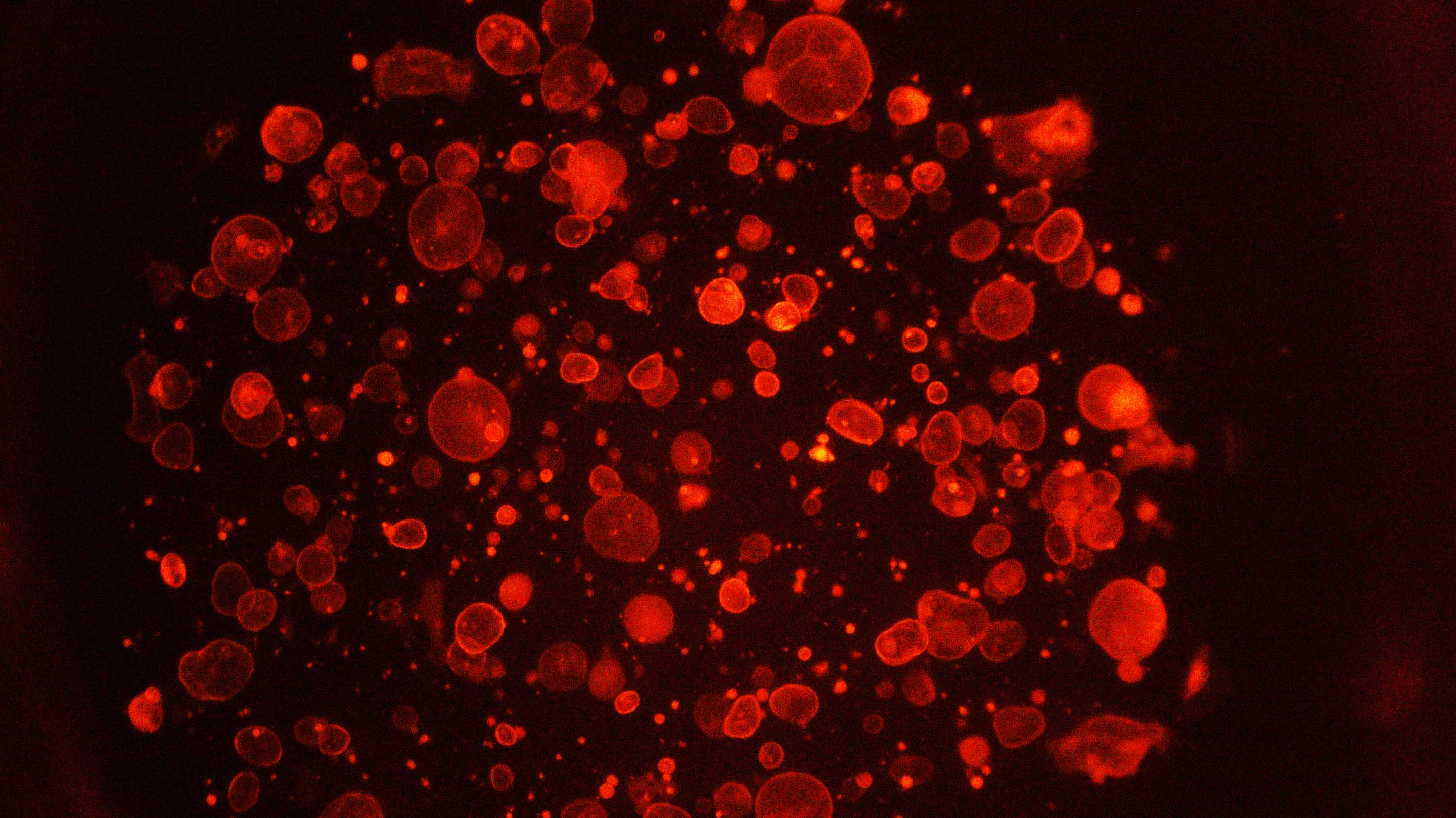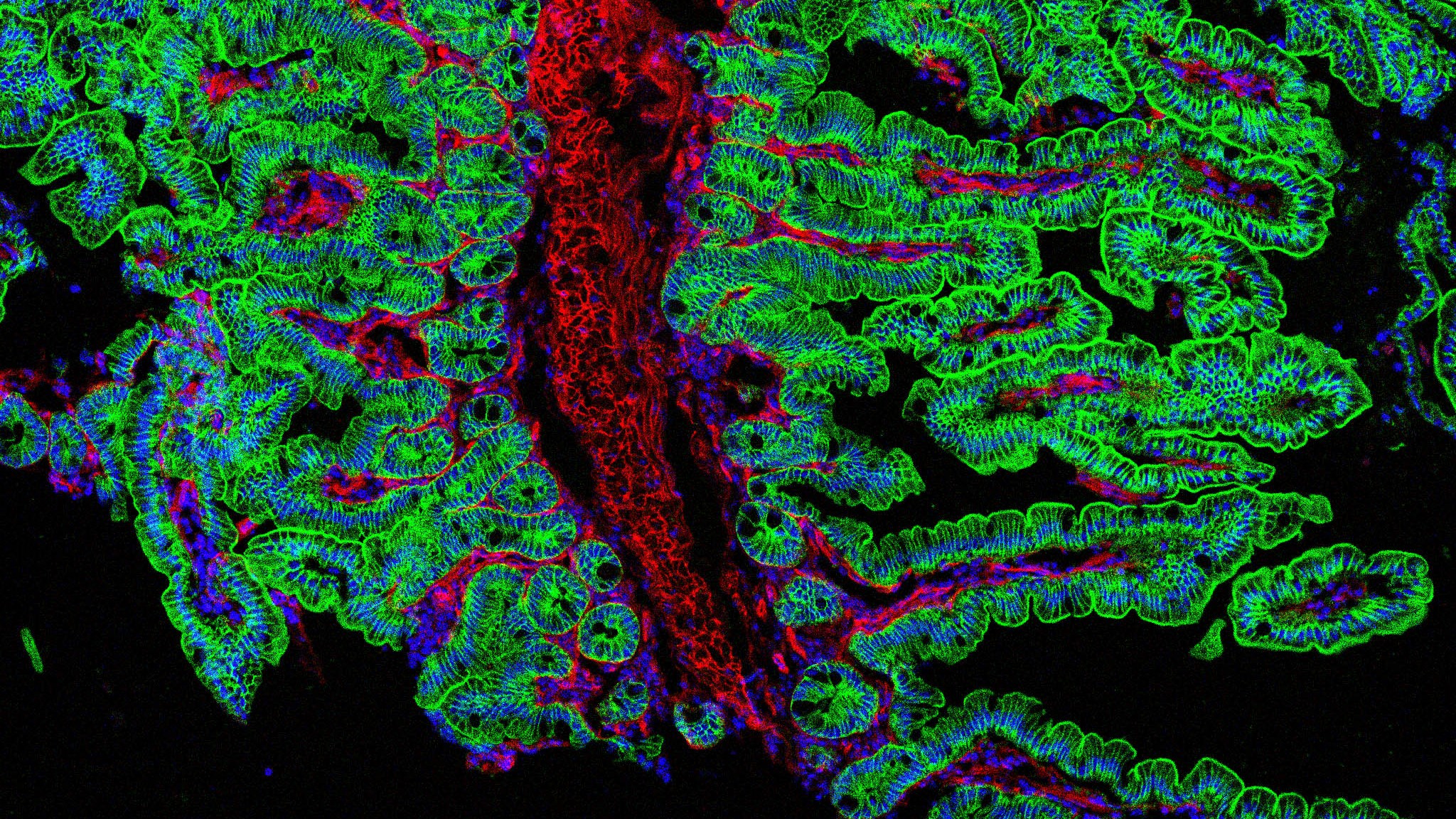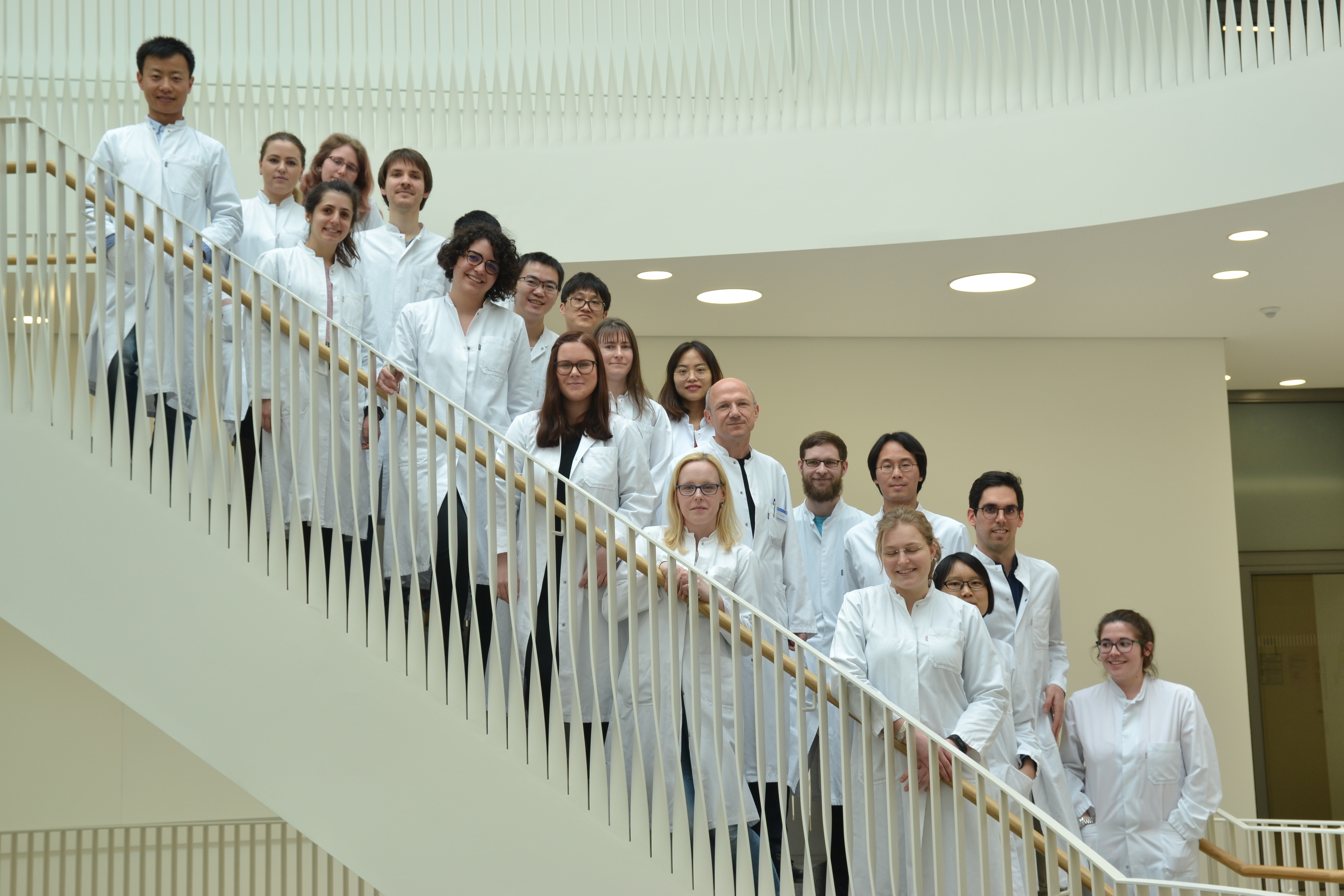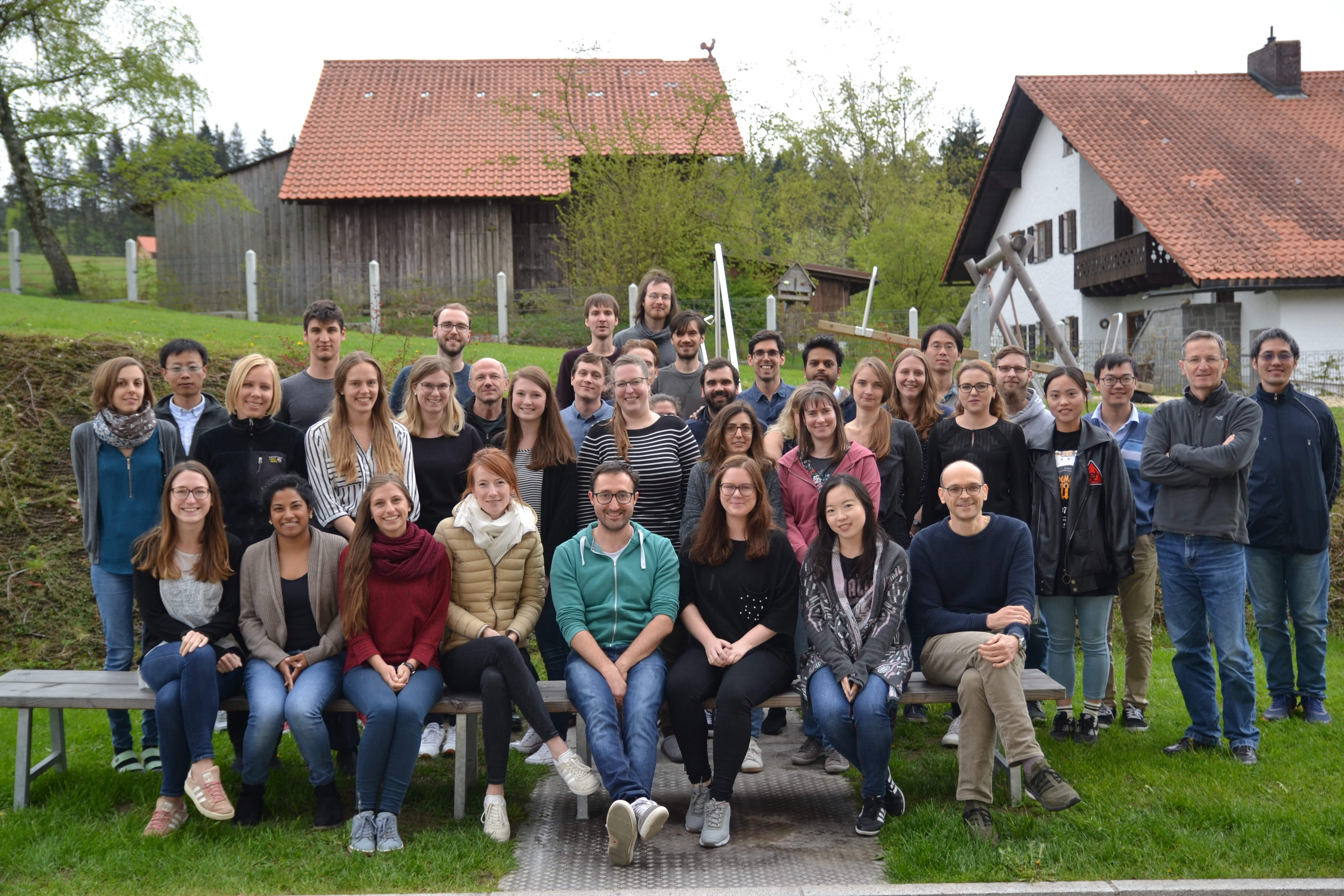The Saur Lab
We are studying fundamental biologically and clinically relevant aspects of cancer: how it develops, progresses, spreads to distant sites, and why it becomes resistant to anti-cancer therapies.
Cancer arises from a complex and heterogeneous interaction of driver mutations that can affect hundreds of genes. The function of most of these genes, their interplay and how we can exploit cancer specific dependencies for therapy is largely unknown.
To understand the complexity of this disease, we are analyzing patient samples, model cancer subtypes in vitro and at the organismal level by genetic engineering. Our lab is developing and deploying innovative genetic tools, such as dual and triple recombinase systems, organoids as well as microscopy to understand the cross-talk of cells in tumors with different genetic makeups.
We perform in vitro studies, such as large-scale drug and genetic screens, and follow in vivo approaches to uncover the interaction of tumor cells with their environment. For example, we are exploring the complex communication between cancer cells and their neighbors to dissect how they escape immune attack and suppress the immune system or prevent chemotherapy from working. This allows us to identify novel vulnerabilities for cancer therapy and investigate the mechanisms that make cancer resistant to therapy.
Identifying therapeutic vulnerabilities, understanding metastasis and tackling primary treatment failure are among the most challenging problems in oncology. Our work explores new ways to target solid tumors more efficiently, and translate these finding to clinical trials to improve the prognosis of cancer patients.
Our Mission: Understanding the biology of cancer to uncover therapeutic vulnerabilities.
Learn more

TranslaTUM - May 2017 Image: A. Heddergott
The Institute
The Institute of Translational Cancer Research and Experimental Cancer Therapy is strongly integrated with the Division of Translational Cancer Research at the German Cancer Research Center (DKFZ) and the German Cancer Consortium (DKTK). The Institute is located at TranslaTUM, a highly innovative interdisciplinary cancer research center at TUM, where doctors work with colleagues from the fields of natural sciences and engineering on research into causes, diagnostics and potential treatments of cancer with the aim to rapidly convert new knowledge into patient care. Our multidisciplinary institute integrates wet lab biology with computation and computer modelling and is home to researchers from more than 9 nationalities. It´s goal is to promote independent career development and diversity. The key mission of our institute is to develop and use cutting-edge functional genetic approaches to understand the biology of cancer thereby guiding the development of rational and effective cancer therapies to clinical application.
https://www.translatum.tum.de/(link is external)


